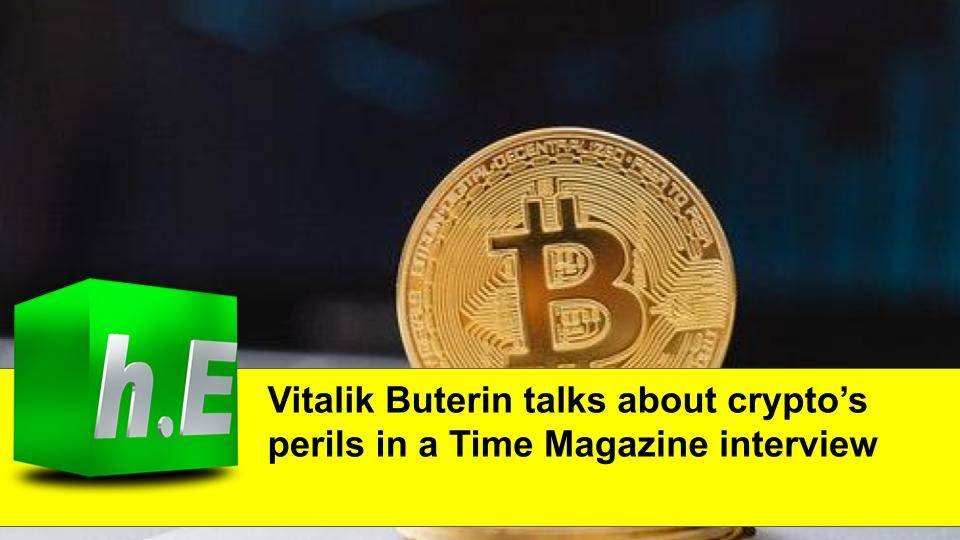Ethereum co-founder Vitalik Buterin graced the front page of Time Magazine this month after he was interviewed by the publication about the potential perils of the industry he helped to create.
During the 80-minute interview, Buterin explained the “dystopian potential” of digital assets if implemented incorrectly. Among his biggest worries are overzealous investors, high transaction fees, and public displays of wealth by those claiming to have made a fortune trading crypto and nonfungible tokens (NFTs).
While Bitcoin reigns supreme in the crypto market, Ethereum is the second biggest on the market, and it was the brainchild of Vitalik Buterin, who came up with the idea when he was just 19 years of age.
Buterin wrote the whitepaper for Ethereum back in 2013 which has gone on to make him a billionaire, yet he did not even finish university.
Although Bitcoin is now the closest rival to his company, Buterin had been a big fan from a young age and even wrote for a Bitcoin blog to gain some of the currency himself, before co-founding Bitcoin Magazine with future Ethereum co-founder Mihai Alise.
Buterin wishes Ethereum to transform into a launchpad for social experimentation in the future. He wants the platform to host trials for fairer voting systems, urban planning, a system for universal basic income, and similar public projects. With such projects, Buterin desires Ethereum to balance the power of authoritarian governments and Silicon Walley’s dominance on our digital lives.
Buterin has always been very careful with the centralization issue. This went as far as not putting himself out there as the “founder” of Ethereum because he worried about influencing the community. So he tried to keep the public appearances as minimum as possible.
However, he also acknowledges that his future vision on Ethereum could be quickly taken over by the greedy. So, he reluctantly positions himself in a more extensive public role to help nudge Ethereum’s future in the right direction. He says:
“If we don’t exercise our voice, the only things that get built are the things that are immediately profitable. And those are often far from what’s actually the best for the world.”
The issue is created in partnership with the LITDAO. LIT is a web3 cultural currency and NFT project that conceived and created the first fully decentralized book earlier this year. The magazine will live on the blockchain but is hosted through a decentralized protocol allowing holders to read the magazine in its entirety through an interactive NFT. TIME will airdrop the NFT issue to select TIMEPiece and genesis LIT community wallet holders, which was made possible with the support of Circle.

The issue will be launched in collaboration with the LITDAO, according to an official post. This NFT project was launched in December 2021. Operating with its own native currency LIT, there is some mystery surrounding this project.
No roadmap has been revealed, no use case. The LIT project was created to under-promise and over-deliver, as stated by the project’s FAQ section. Via their Twitter handle, the team behind the project celebrated their partnership with TIME magazine.
LITDAO reported that LIT Genesis holders will be eligible to receive an airdropped of “this historic NFT” alongside the TIMEPiece Genesis holder. The latter is a web3 community initiative created by TIME Magazine, and launched in September 2021, with a collection called “Build a Better Future”.
We have always emphasized the importance of having a good website for your company because it can act as your best tool for marketing and sales. A poorly designed website can repulse people from your business and can cause you to lose customers before you even have them. Get in touch with HyperEffects to work on creating, enhancing, and making the website of your company more user-friendly.

